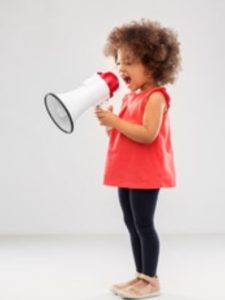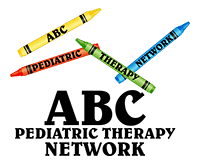
Iceberg for Early Intervention
From a Parent's View:
My child isn’t talking. I don’t know why. I’m concerned; I’m worried. When will my child talk? I want my child to speak words, sentences, ask/answer questions... just like other kids his/her age. I’ve talked with the pediatrician. We’re going to get a speech evaluation and see what’s going on.
After an evaluation, we learned a lot!
- Speech: the sounds kids learn to say – B, P, M, N, T, D, W, H, Y..... then F, K, G, S.... then L, SH.... and so on! Did my child babble much as a baby? Does my child try to imitate my words and sounds? Does my child make animal sounds or other noises? The therapist wants us to work on animal sounds and imitating sounds at home to help my child work toward speaking words.
Some kids have Mixed Receptive/Expressive Language difficulties AND Speech Production difficulties
- Receptive Language: what the child understands and comprehends – lots of specifics! When I ask my child to go get shoes or let’s go in the car (routine directions), they usually can. But when I tell my child something that’s not routine, they often don’t seem to understand (novel directions, vocabulary, concepts). My child doesn’t know that many names of common objects (nouns) or actions (verbs). The therapist wants us to work on understanding more words because that will help my child say more words eventually.
Some children have good Receptive Language skills (my child understands well!) but are lacking Speech and Expressive Language.
- Expressive Language: the words and vocabulary a child can use to for letting others know wants/needs; the words a child can use to tell about their play and their world. The therapist mentioned using sign language and possibly pictures to communicate. I found it odd at first, because I want my child to speak words. But, the therapist explained that other modes of communication are important “bridges” to talking. My child needs a foundation of communication in general to help the words come eventually.
- Social Skills – does my child: look at me and other people? laugh and smile? seek me for comfort? play with family members (not just the favorite toys but seeks attention from adults)? wave hi/bye? point at things to show me? The therapist wants us to work on singing songs with hand motions as well as turn-taking play/games so that my child will interact more socially with family and friends.
- Play Skills – does my child imitate fun/silly things that I do? attempt to sing songs or dance? clap or do other hand motions? how many different things does my child do with toys? does my child enjoy a variety of toys? does my child explore toys? do any pretend play? does my child use their imagination? The therapist wants us to work on doing different actions/play with the same toy – for example, with blocks, we can stack them to make a tower, we can hide them in different places, we can use them to build shapes, and we can play silly games with them (like balance on head).
- Attention – does my child have a good attention span for activities? or does my child move from toy to toy without fully engaging? The therapist wants to work on “sticking with” toys/activities for a few minutes at a time, having my child indicate “all done,” and cleaning up before moving on to the next toy/activity.

Occupational Therapy (OT) – The therapist mentioned that ABC also has OT services. These therapists can help children with fine motor (finger) skills, attention, play skills, emotional/behavioral regulation and lots more! Occupational Therapy could be a great addition to my child’s overall learning. When we support children as a whole, they grow and learn toward their true potential! They will likely learn how to communicate that much faster!
Top of the Iceberg: Speech Production (sounds, syllable structures, single words, phrases), Expressive Language (requesting, commenting, answering yes/no questions, answering what/where/who/why questions, asking simple what/where questions), Pragmatic Language (simple conversation), Behavior/Regulation (frustration, on-the-go, etc.)
Bottom of the Iceberg:
Cognitive/Functional Communication Skills during ADLs: Cause/Effect, Joint Attention, Behavior Regulation Gestures, Communicative Intent
Receptive Language: routine directions, novel directions, identify nouns, understand action verbs
Pragmatic / Social: Social Interaction Gestures, Coordinate Attention, Joint Attention Gestures, Eye Contact/Gaze, Interest in Peers/Others, Social Smiles, Intonation/Prosody
Speech: early vocalizations (frequency and type), babbling, jargon, vowels used, consonants used
Play Skills (with others): alone, parallel, interactive/reciprocal
Play Skills (type): Motor Imitation, Motor Learning, use objects in a variety of ways
Exploratory: Exploration and simple manipulation of single objects (starting infancy)
Relational: Takes objects apart and puts them together (starting 7-8 mos)
Functional: Simple pretend play with realistic objects (starting around 12 mos)
Symbolic: More complex pretend play (e.g., object substitution, imaginary qualities, role play) (starting by 15-18 mos)
ASD Play – more repetitive, less inventive/varied, fewer attempts to interact with others, interest in part of toy only
DD Play – also less sophisticated so need to differentiate from ASD (repetitive, sensory features)
 Skip to content
Skip to content